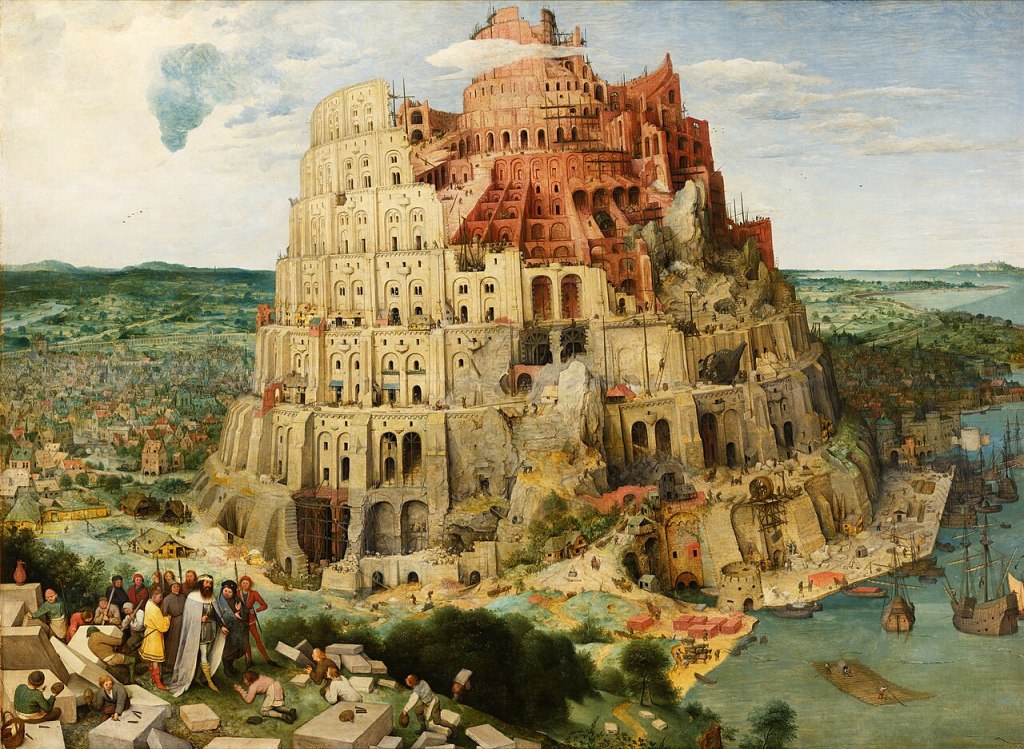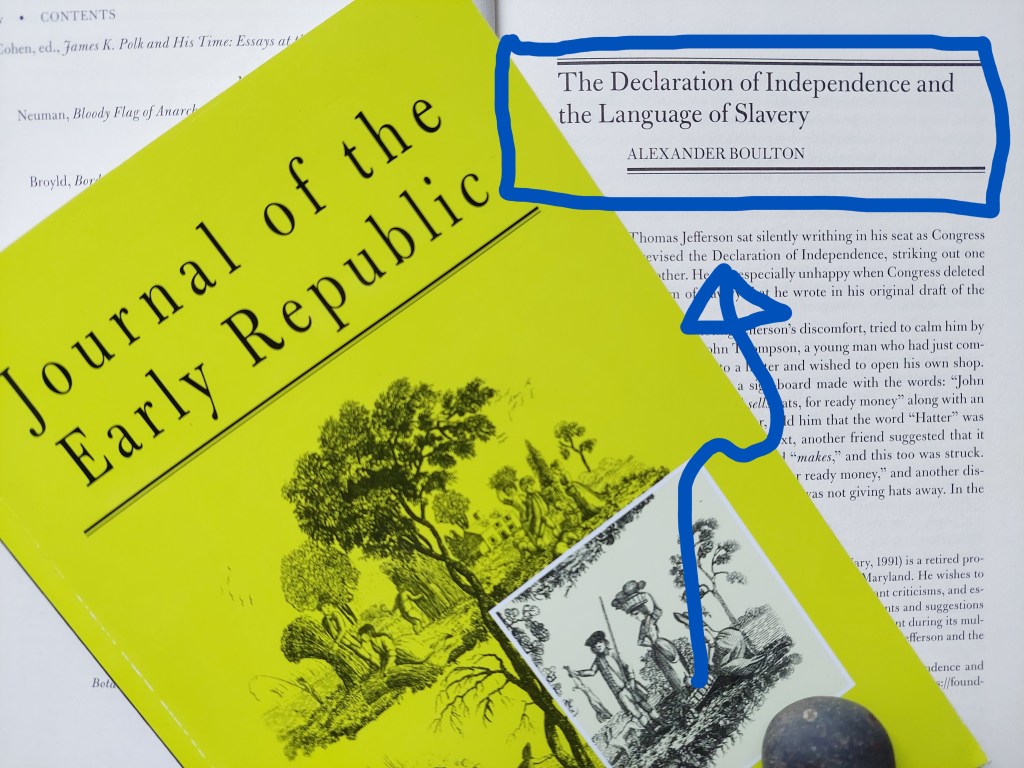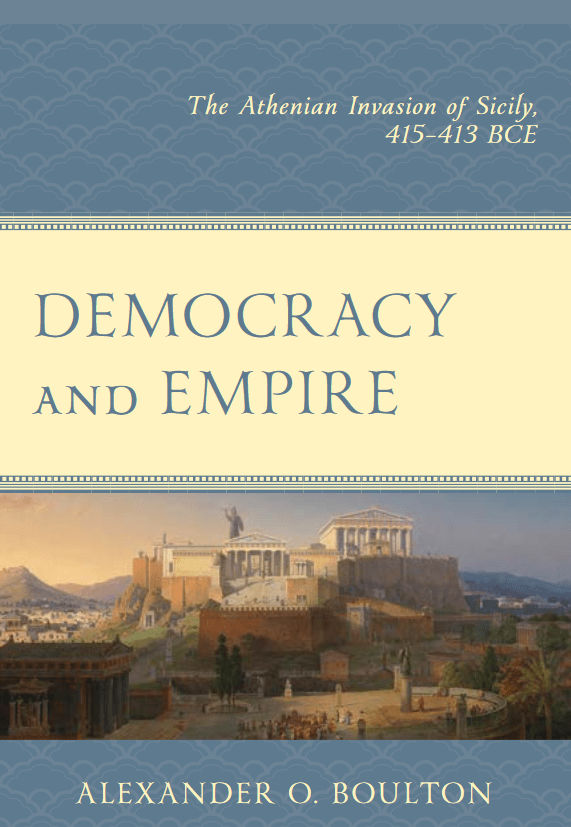“No Trump Fingerprints Doesn’t Mean No Crime,” Baltimore Sun, 3/30/2019
The old joke that absence of evidence is proof that the conspiracy is working is no longer a joke, and no longer old.
Attorney General William Barr’s summary of the Mueller report stated that it did “not establish that the President was involved” in collusion with Russia to interfere with the 2016 elections. This seems on first reading to be a fairly straightforward statement that the president was innocent of collusion. But what is this conclusion based on? The investigation into Russian collusion was impeded every step of the way by the president’s public actions, which may have prevented relevant facts from emerging.
The fact that Mr. Trump and his associates have been able to leave no fingerprints at the scene of the crime does not prove that no crime was committed, nor that he is innocent.
To many of us who have followed this story, Mr. Barr’s conclusion is incredible. Despite Mr. Barr’s statement to the contrary, there is a significant amount of circumstantial evidence that Mr. Trump and his associates worked with Russia to manipulate the 2016 presidential election. According to the Mueller report, the Russians made multiple attempts to contact the Trump campaign, and we know that at least Donald Trump Jr. was very eager to accept their aid when he responded to a request for a meeting to discuss “dirt on Hillary.” “I love it,” he replied. The result was the famous Trump Tower meeting of June 2016 in which the president’s son, Donald Trump Jr.; Trump’s son-in-law, Jared Kushner; and his campaign manager, Paul Manafort, met with four Russian operatives. President Trump subsequently advised Mr. Trump Jr., to lie about the purpose of that meeting, stating that it was about adoption policy.
We know as well that a large number of Mr. Trump’s advisers, including Mr. Manafort and Michael Flynn, his national security adviser, had numerous meetings with Russian operatives before the election, and that they lied about those meetings. Mr. Manafort is also charged with giving Republican polling data to a Russian operative. This data could have been used by the Russians in their social media campaign to influence the 2016 election.
In addition to the secret meetings that Mr. Trump’s advisers had with Russians, we should add President Trump’s own secret meetings with Russian President Vladimir Putin (five according to the New York Times), at which no American officials other than Mr. Trump were present, and in which the translator’s notes were confiscated.
So far, five associates of Mr. Trump have been convicted as a result of the Mueller investigation, while others are facing trial on charges related to the Russian investigation.
From the investigations, it is clear that the Russians wanted to work with the Trump campaign, and the Trump campaign wanted to work with the Russians, and they each had ample opportunity to do so. Eventually, we may know much more.
The case against Mr. Trump for obstruction of justice is equally compelling. The evidence for this starts with Mr. Trump asking the director of the FBI, James Comey to “let this go,” meaning the investigation of Michael Flynn. Ultimately, Mr. Flynn pleaded guilty to obstruction of justice relating to the Russian investigation. By then, however, Mr. Trump had fired Mr. Comey, publicly stating two times that he did so because of the Russian investigation. Add to this Mr. Trump’s frequent criticism of the Mueller investigation and his attempts to impede its work, most clearly by refusing to testify in person with Mr. Mueller’s investigators. And, add to this his dismissal of his attorney general, Jeff Sessions, related to Mr. Sessions’ recusal from oversight of the Russian investigation.
Finally, there is overwhelming evidence that Russia received benefits from their support of Mr. Trump in the 2016 election including: the relaxation of the Russian sanctions on some of Mr. Putin’s key associates; the weakening of a statement on Ukraine in the Republican Party campaign platform in 2016; Mr. Trump’s consistently siding with Mr. Putin, most notably his agreeing with Mr. Putin (in Helsinki) that Russia did not interfere in the 2016 election, despite the conclusions of the U.S. intelligence community. And, most importantly, Mr. Trump’s lack of support for NATO and the weakening of our ties with our traditional allies in Europe.
William Barr’s report unfortunately leaves many of the most important questions raised by the specter of Russian interference in the 2016 elections unanswered. That is why Congress and the courts must continue to aggressively investigate these issues, and why the full Mueller report must be made public.
Alexander O. Boulton (aoboulton@hotmail.com) is a professor of history at Stevenson University.
“Doubling Down on Trump,” Baltimore Sun, January 16, 2019
Many people have concluded by now that it is impossible to understand the workings of the mind of President Donald Trump. Is he a masterful politician following a preconceived plan to reform government and strengthen America’s international relations? Or is he a bully and a psychopathic liar whose policies will destroy American democracy and the nation’s status in the world?
While understanding Donald Trump might be near impossible, a book written in 1956 may give us insights into the motivation and behavior of Mr. Trump’s base of enthusiastic supporters. The book is “When Prophecy Fails,” by social psychologist Leon Festinger.
In it, Festinger described how he with a group of colleagues joined a doomsday cult led by a charismatic Chicago housewife, who claimed to communicate with extraterrestrial aliens who revealed to her that the world would be destroyed in a great flood on Dec. 21, 1954. She gathered a small group of followers who believed that they would be saved at midnight of the 20th by boarding a flying saucer that would take them to the planet Clarion. Many members of the group of true believers quit their jobs and sold all their possessions in preparation for the event. On the appointed night, the group sat in a circle, waiting for the flying saucer to appear. Instructed to remove any metallic items from their persons, they removed belts, bras and zippers from their clothing.
Midnight came, a clock struck 12, and (surprise) nothing happened. A long silence followed. Some in the group begin to cry in shocked disbelief, but others were comforted by the leader’s message that God had prevented the great flood because the group had, by their patient waiting, spread a light that saved the world.
Contrary to what might be expected, the failure of the prophecy only strengthened the faith of many of the individuals in the cult. Subsequent prophecies of global destruction (which obviously never happened) only re-energized the faith of the true believers.
In his book, Festinger called this process “cognitive dissonance.” He generalized from this example that under certain circumstances — specifically if an individual has expressed his or her commitment to a cult or set of ideas with some physical acts that cannot be reversed, then the individual may try to mitigate the contradiction between their ideas and reality by, in effect, “doubling down” and becoming even more committed to the ideas or the ideology. Every event or fact that contradicts one’s beliefs can actually work to increase a commitment to a false narrative.
This psychological inversion is especially powerful if it has the support of a larger group of true believers, and is reinforced by activities that bring believers together. These activities can include increased efforts to convert others — sometimes by spreading rumors that provoke personal fears, which themselves can be part of a cycle in which those rumors serve to confirm the fears that they provoked.
The idea of “cognitive dissonance” can describe much more than just the psychology of cults. Cognitive dissonance is in fact a fairly common coping mechanism, which all of us have probably used at one time or another. A smoker who is confronted with evidence of the dangers of smoking will often claim that the effects of smoking are not as bad as described. (You can substitute “climate change” in the previous sentence for “smoking.”) When we are confronted with two contradictory ideas, we often do not choose rationally between them, especially if we have already committed ourselves in some way to one of them.
To resolve such contradictions, to avoid the anxiety that holding two mutually exclusive ideas causes, we are apt to energetically embrace the idea to which we have previously committed ourselves. Once firmly committed, it is increasingly difficult to turn back. Once you buy a MAGA hat or attend a Trump rally, it is an easy step to disavowing previously-held abstractions such as free trade or reducing the debt. Before you know it, you find yourself believing that a wall will save us from rapists and terrorists, that America’s international allies are our enemies, and that our Cold War enemies are now our friends. The next step is believing conspiracy theories about sex slaves in Washington D.C. pizza shops. Before you get to that step, hopefully, reality will slap you on your head and tell you to wake up.
Alexander O. Boulton is a professor of History at Stevenson University. His email is aoboulton@hotmail.com.
“The New World Disorder,” Baltimore Sun, January 20, 2017
With the tumultuous events of the past year slowly receding in our rear view mirror, we can reasonably say that the world of 2017 is going to be fundamentally different from that of 2016. A great transformation has occurred in the past few months that will leave the United States and the world dramatically changed.
The election of President Donald Trump, which left many conservatives elated and many liberals in despair, is only part of a larger picture of a revolution in world affairs. In the aftermath of the Cold War, many commentators described a “new world order,” in which ancient conflicts of us-against-them were all replaced by America’s leadership in a community of nations. For a long period from 1989 to very recently, America developed friendships with Russia and China. We had strong allies and friends around the world in Europe and the Middle East. Despite the rise of fundamentalist Islamic groups who were animated by a hatred of the United States, we continued a policy of advancing our mutual interests with much of the Islamic world. In 1990, we fought alongside Arab nations to curb the aggression of Saddam Hussein in Iraq. We “led from behind” against first al-Qaida and then ISIS, helping to stabilize nation-states in crisis, while avoiding direct U .S. involvement, which would foster more hatred of the U.S. During this time, the global community was further strengthened by expanding economic markets with the European Union and the North Atlantic Free Trade Agreement.
The new world order began to unravel in 2003 with George Bush’s decision to invade Iraq and has continued during the Obama presidency. Russia and China have entered a new phase of imperialistic expansion. Old allies — Turkey, the Philippines and recently Israel — are increasingly antagonistic. The European Union has been weakened by the British decision to leave, with other nations nearing important decisions on their future in the union.
In the United States, the election of Donald Trump is only one sign of a great revolution in world affairs. His personal, confrontational style, which propelled his success in business, will be translated into American foreign policy with much more uncertain results. A realignment of our international relationships, especially with Russia, Israel and the United Nations, threatens a period of increased instability around the world. Meanwhile, American domestic policies, particularly concerning issues of immigration, abortion, health, education and the environment are being wrenched in a radically conservative direction.
Despite the swiftness of these dramatic changes in world and domestic affairs, we should perhaps not be surprised. The storm was brewing for a long time before the clouds opened up and the lightning struck. The expansion of the role of mass media and social media, which allow each of us to cherry-pick the news and the facts that we want and identify with communities that know no geographic boundaries, has allowed numerous factions to form in opposition to the status quo.
The power structures, centralized political institutions, scientific and educational organizations that offered intellectual coherence, political stability, prosperity and some degree of justice to large numbers of people have been largely discredited, despite their undeniable accomplishments. In this environment, groups with very narrowly-focused agendas, from the tea party to ISIS, have proliferated.
Corporations and big businesses have played both a positive and a negative role in this by advancing globalization through the expansion of markets, while at the same time appealing to smaller and smaller market niches.
Similarly, American political parties have played an important role. Both parties mix pragmatic realism with abstract ideology, and both parties embrace the ideal of personal freedom. There the similarities stop, and it is a disservice to both of them to argue, as many people do, that both parties are alike. For most Republicans, personal freedom depends on ideals of individual initiative, moral responsibility and “pulling yourself up by the boot straps.” Ironically, these ideals, while noble in themselves, have fostered a degree of social inequality unseen before in U.S. history. Democrats, on the other hand, have fought against these headwinds believing that personal freedom depends on equal opportunities to education, access to health care, good jobs and a clean environment, and that only a strong and active government can ensure the greatest good for the greatest number.
There are strong arguments in favor of both personal responsibility and government activism, but until we work out these fundamental contradictions, the world will probably continue to unravel.
Alexander O. Boulton is a professor of history at Stevenson University; his email is aoboulton@hotmail.com.
“Stevenson University Students React to Trump’s Win” Baltimore Sun, November 30, 2016
Students in my history class at Stevenson University were asked to finish this sentence: “When I heard that Donald Trump was elected president…” Here’s what they said:
“America will live on.”
“I was relieved that Clinton lost. I don’t like Trump and I didn’t vote for him, but I believe he is more fit to run and will make a better president than Clinton.”
“I was horrified and confused. I was shocked to see so many people actually voting for a man who has no background to handle being president of the United States.”
“I was excited that our country was finally going to experience real change.”
“I cried, and then I thought it was best to just get over it and try to have some hope for my country’s future.”
“I thought to myself ‘these next four years are going to be interesting.'”
“I was a little hesitant; but I still have hope that no matter who is president, things will work out positively for our country.”
“Happy my party/candidate won. Optimistic of what would happen in the future.”
“I packed my bags to move to Canada, but the Canadian website crashed.”
“I first panicked. Then I realized that regardless of who was elected, I was still going to wake up and do the same thing, so there was not much point to complaining and sulking over it.”
“I cried and started to mourn democracy.”
“I laughed. I thought about how I never thought Americans would actually be stupid enough to vote for him. They proved me wrong.”
“I was so shocked and in denial that it almost felt like I was grieving the death of a family member.”
“I had a panic attack and became scared for the future of the world.”
“I worried about the impact of having an impulsive leader as a role model not only for children, but also adults that see the president as someone whose behaviors they should also exhibit.”
“I woke up at 2:50 a.m. rubbing my eyes in disbelief that the candidate that I voted for won. I cried tears of joy at the thought of a Republican president, bringing change to the White House, Congress and Supreme Court. I’m just as excited for Donald Trump today as I was a week and a half ago, despite all of the problems.”
“I was satisfied.”
“I danced around the room full of happiness.”
“I knew that the country would be divided by controversy.”
“I was distraught, disappointed and upset. It shows how racism is still upon us. Yet I was not surprised, just a shocking reminder.”
“I was surprised because in Australia we joked about him all the time, so I was really shocked to see that it actually happened. My friends back home messaged me a lot saying ‘what the hell?’ My Mom messaged me saying she really wants me to come home because she is worried about America.”
“I was disappointed in humanity because I thought as a nation, we knew better.”
“I was disappointed. I wanted Hillary to win.”
“I cried in the shower for 40 minutes.”
“I thought America still has a chance to be great again.”
“I immediately began to worry about my future and the other lives that will be negatively impacted as a result of his election. America’s future is in grave peril with this man.”
“I was in shock. I’d been watching the New York Times live map the whole night, so I knew logically that it was coming. But honestly, nothing could have prepared me for it actually happening.”
“Was concerned about how everyone would react. Honestly, I expected a more severe series of protests than we have experienced.”
“I was surprised, every poll had him down on Hillary Clinton, but the American people made their voices heard, and I am pretty optimistic and interested in the future of this great nation.”
“I took a breath.”
“I was excited that career politics and corruption had been beat by an outsider (Donald Trump). It’s now time for us to come together as Americans to make our country better than it is already.”
“I thought it said more about Clinton than Trump. People disliked her so much that they were all right with Trump possibly being president [because] they stayed home, did not vote, etc.”
“I was disgusted, angry and scared, but not surprised at all.”
“I wondered what changes would occur and how people would respond. I didn’t like either candidate, so either way things would be interesting.”
“I knew our country was a joke.”
“I was in complete shock. I began to feel angered that the American people voted for a racist, sexist idiot. I also felt scared for my future as a female and feminist who has a very diverse group of friends. I felt sad for the kids who look up to our president, and felt concerned to think they would look up to him. I felt unsafe in America and debated moving to Canada.”
“I thought to myself ‘does he realize the position that he has just obtained and does he understand how much time and responsibility it takes to run the United States?’ Also I felt as though he signed his own death certificate because a lot of people will try to ruin/take his life.”
“I was scared.”
Alexander O. Boulton is a professor of history at Stevenson University; his email is aboulton@stevenson.edu.






